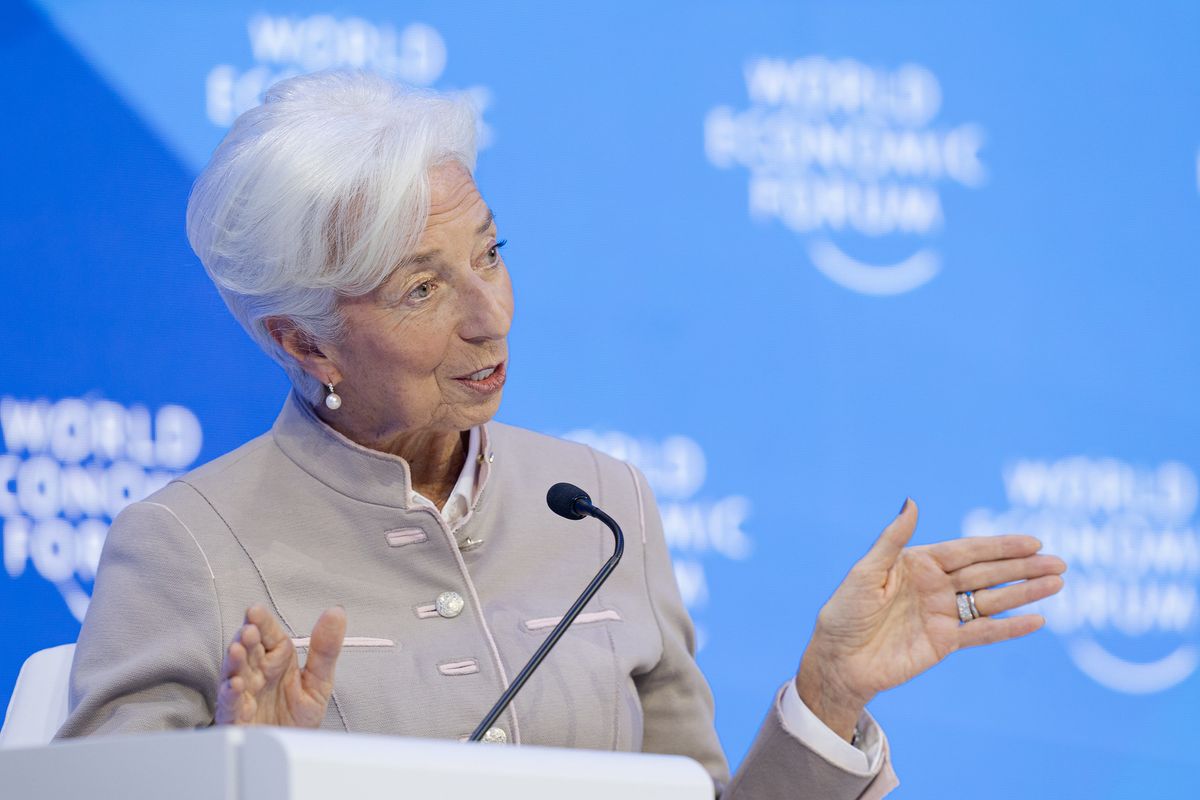ECB President Warns of Economic Peril from US-China Rifts

The Lede: European Central Bank president Christine Lagarde made a warning that fragmentation of the world economy into rivaling US-China blocs threatens to destabilize trade, increase inflation, and weaken growth.
What We Know:
- Speaking to the Council on Foreign Relations in New York, Lagarde said that geopolitical rifts caused by the US-China rivalry could push inflation up by 5% in the near term and 1% in the long term. She added that central banks will find it difficult to contain inflation and that policymakers must control costs by improving supply chain efficiencies and conserving energy.
- She touched on the difficulty of shifting trade patterns, highlighting the example of China supplying 98% of Europe’s rare earth minerals used in key technological products.
- Lagarde mentioned that the U.S. could not take for granted the dollar reserve currency status as China, Russia, and other countries seek to move from dollar dependence.
The Background: Lagarde, who has headed the ECB since 2019 after eight years as the Director of the International Monetary Fund, has implemented a monetary policy of aggressive interest rate hikes to combat inflation in the Eurozone. Inflation in the 20 shared-currency countries slowed to 6.9% in March, down from the peak of 10.6% in October. Falling energy prices and an unusually warm winter along with alternative energy supplies and the opening of liquefied natural gas (LNG) terminals have also helped the European economy.
Likely Outcomes:
- Lagarde’s comments put Europe in a precarious position moving forward as the EU oscillates between its U.S. and China ties. European leaders will continue to make declarations of reducing reliance on China, while in reality maintaining and even strengthening profitable trade relations and political arrangements, especially at the country level.
- The pressures described by Legarde in this speech may lead to fragmentation in the EU as some countries in the bloc seek economic cooperation with China while others want unity in moving away from China. The EU may respond to its own countries that diverge from its China policies with sanctions.
- The U.S. will also continue to urge the EU to stand with its policies against China including on semiconductors and on the Taiwan and Indo-Pacific security front. However, French president Emmanuel Macron’s latest statements suggest that some in Europe want to keep the U.S. at arm's length regarding China.
Quotables:
"We are witnessing a fragmentation of the global economy into competing blocs, with each bloc trying to pull as much of the rest of the world closer to its respective strategic interests and shared values…[a] period of relative stability may now be giving way to one of lasting instability resulting in lower growth, higher costs and more uncertain trade partnerships" – Chrstine Lagarde, President of the European Central Bank
Good Reads:
US-China economic rivalry leaves EU squeezed, ECB worried (EU Observer)
